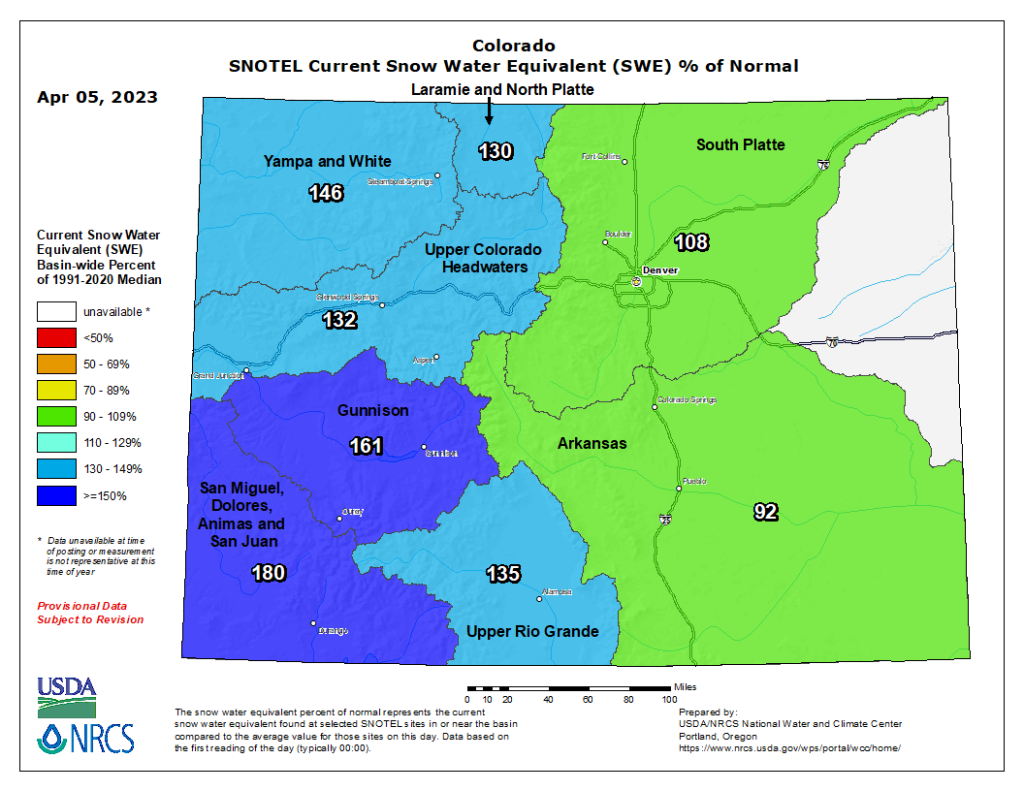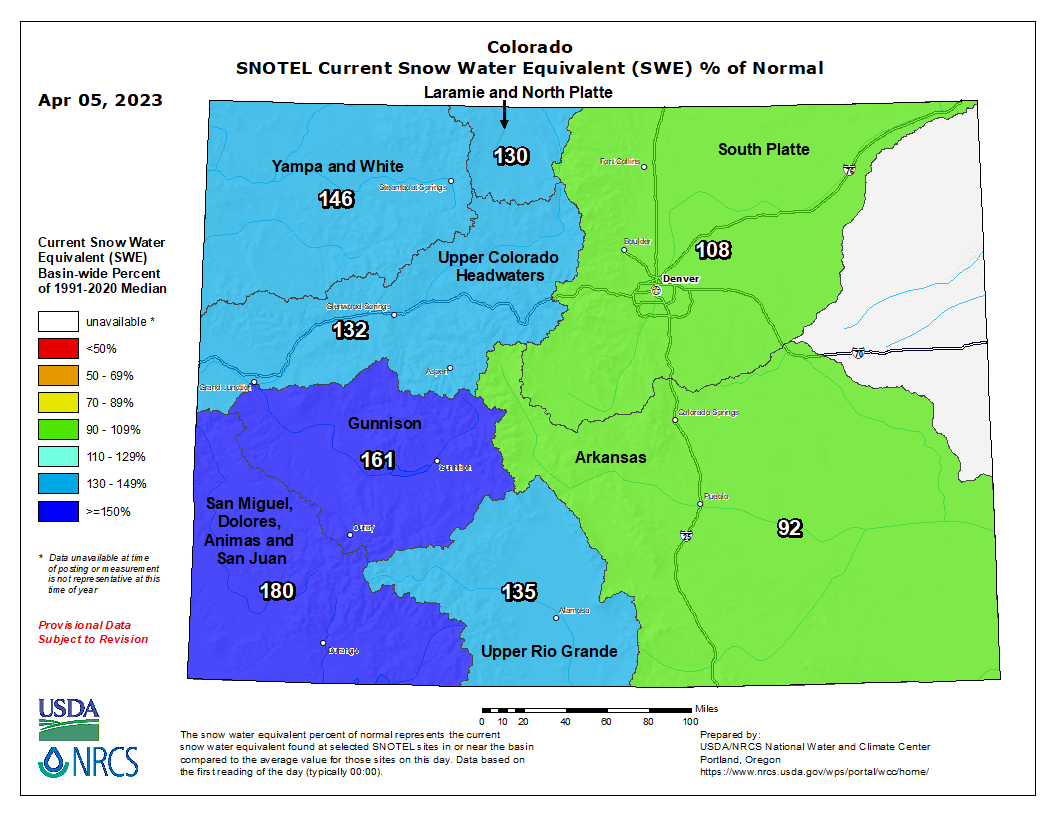The U.S. Bureau of Reclamation is preparing to open the Fryingpan-Arkansas collection system to divert a projected 57,000 acre-feet of water in April as highlighted in the Arkansas River Watershed Collaborative March River Report.
The Bureau’s projection is based on above-average West Slope snowpack, which has lifted more than half of Colorado out of drought conditions, including the Upper Arkansas Valley.
However, most of the Arkansas River Basin remains at some level of drought, with “extreme” and “exceptional” drought returning in the lower basin, according to the U.S. Drought Monitor.
Snowpack
Arkansas Basin snowpack sits at 92% of median for snow-water equivalent, the lowest in the state. Readings from Ark Basin SNOTEL stations range from 36% of median at Apishapa near Cuchara to 127% at St. Elmo in western Chaffee County.
The Brumley SNOTEL site, near Independence Pass, reports 91% of median, while Fremont Pass reports 94%. Glen Cove, north of Pikes Peak, rebounded from 46% a month ago to 108%. Buckskin Joe in the Mosquito Range reads 62%. In the Sangre de Cristo Range, Hayden Pass sits at 49% of median.

Reservoir Storage
During the past month, Pueblo Reservoir water storage reached 68.6%, increasing from 217,442 acre-feet to 221,675 at the end of March.
Water levels in Turquoise Lake (48.6%) and Twin Lakes Reservoir (71.7%) are intentionally low as the Bureau of Reclamation prepares to import West Slope water through the Boustead Tunnel.
John Martin Reservoir increased from 35,423 acre-feet at the end of February to 38,999 acre-feet at the end of March, even though the Winter Water Storage Program ended March 14.
River Flows
The Arkansas River flow at Granite in north Chaffee County is currently 94.4 cfs. The Wellsville gauge, near Salida, reports 242 cfs, down from February. River flows at Cañon City, 225 cfs, and below Pueblo Reservoir, 71.6 cfs, have also dropped since last month.
Near Avondale the river is flowing at 254 cfs, also down from a month ago. The gauge at Rocky Ford reads 120 cfs, a tenfold increase since the end of February. Current readings at John Martin Reservoir and Lamar are 0.61 cfs and 6.09 cfs, respectively.
Calling Water Rights
With the Winter Water Storage Program done for the water year, Ark Basin calling water rights increased from seven to nine, and the Welton Ditch adds its authorized diversion to that of the Maria Stevens Reservoir.
Once again, the most senior calling right is the 1862 Model Ditch, which diverts Purgatoire River water. Other calling water rights are:
- Canon Heights Ditch, 1865, Fourmile Creek.
- Hamlet Ditch, 1866, Huerfano River.
- Coleman Ditch, 1867, Hardscrabble Creek.
- Widderfield Combined, 1868, Apishapa River.
- Dotson Ditch No. 1, 1868, Saint Charles River
- Smith Ditch, 1870, Taylor Creek,
- Catlin Canal, 1884, Arkansas River mainstem.
- Arkansas River Compact (with Kansas), 1949, Arkansas River mainstem.





